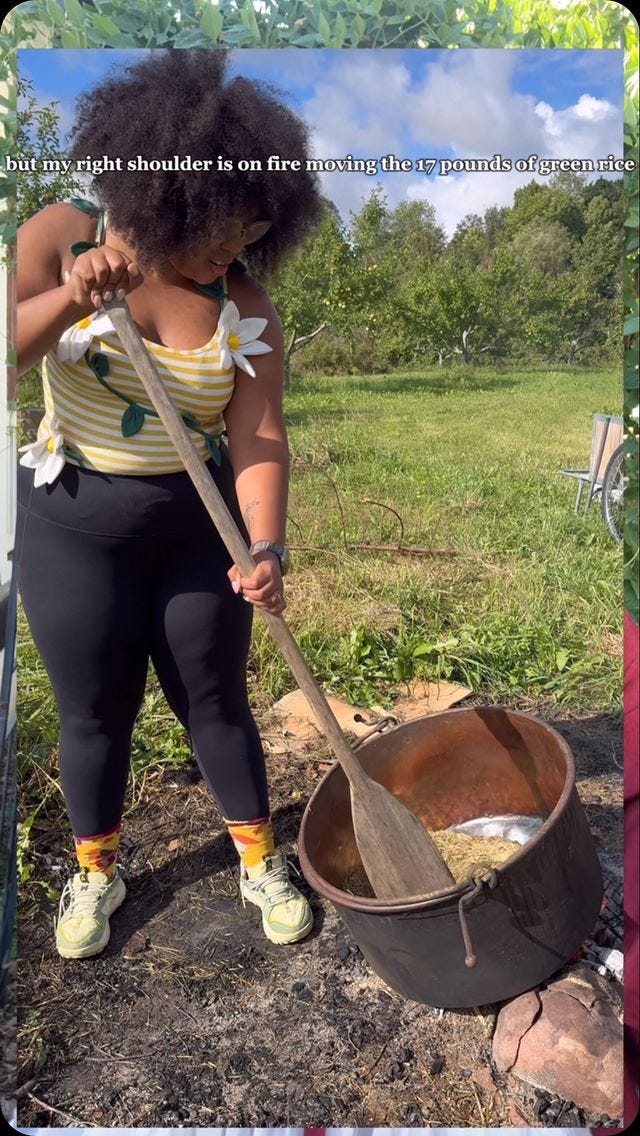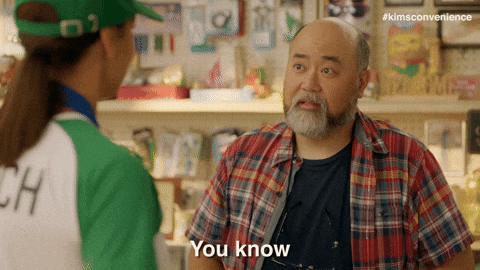Didn’t want to see Behind the Curtain? Update your subscription preferences now!
This is one of those enabling “Research rabbit holes are good for your story!” articles.
Remember my recent short story “The Battle for Mother’s Sea-rice Cakes”?
Did you know that sea rice is an actual thing? It was harvested by indigenous people in various places around the world. Recently a chef has tried harvesting and using them as an alternative grain.
Here’s the interesting part. I stumbled across this Instagram Reel, showing how an American indigenous people harvested the sea grains. They did it in such a way so enough seed would fall back into the water for next year’s plants. It doesn’t destroy plants. It’s a more ecologically balanced way of living at least up until the processing of the grain. Watch the video to see how that happens.
With my pre-agricultural sea dragons (they left Britain pre-ish Stonehenge), it makes sense that they hunt and forage for their food under the water too.
Oh wait, I didn’t tell you about that little origin story tidbit.
You know how you go to a museum because both you and your spouse love natural history and history history and you stumble across an exhibit where your whole origin story (which honestly felt a bit sketchy but you couldn’t put a finger on it) changes?
Yep, that happened. I had to update one of the chapters in “A Grail for Eidothea” as a result to send the timeline quite a bit further back than originally conceived.
We visited Victoria BC, Canada in August of this year and went to the Royal BC Museum. They had an exhibit about Stonehenge.
I took a lot of photos. Tidbits like the River Avon being a great place to confuse the dead should they want to come back (I know!) and this:
“The bluestones from Wales may not have been an arbitrary choice. West Wales is thought to be one of the regions where the first farmers set foot on land when they migrated to the British Isles around 4000 BCE. They spread from there across western Britain, as far east as the area around Stonehenge.”
In this piece about Neolithic Britain and the First Farmers, not only do you get a glimpse at a Mesolithic hunter-fisher-gatherer in Cheddar Man, but through genetics they’ve figured out where these first farmers came from.
I was fascinated that these Hunter-fisher-gatherer people basically vanished from the genetic landscape of Britain, around about the same time the first bluestones were brought to Stonehenge and after a massive feast at Stonehenge that involved both the hunter-fisher-gatherers and the farmers. (You can read a little more about that here at the British Museum.)
Did anyone else think Red Wedding?
The genetic material of the hunter-fisher-gatherers basically disappeared. Wiped out? Or taken by the Lady Morgaine to an underwater city where they live peaceably (ish) hunting, fishing, gathering? … which brings us back to the sea-rice.
There is no way I could have gotten to sea-rice without first having gone to Stonehenge through the research rabbit hole.
My only issue (ha! who am I kidding) is that the Celts came later (like about 2,000 years later) and that’s the mythology I’m using. But as we don’t really know anything about these hunter-fisher-gatherers… … who’s gonna know? Who’s gonna know?
Starting the origin story way earlier has given me a lot more scope to be writing things like Hiraeth and Obsidian and Flame, and of course, The Battle for Mother’s Rice-cakes.
Did you go down any of these rabbit holes with me? What did you find most fascinating?
Did you know you can subscribe for free and have posts like these, plus fiction, delivered to your inbox? Thank you if you already subscribe! I appreciate you being here! Subscribe to The Môrdreigiau Chronicles:













I really enjoyed this post! I think it's fascinating to get a peek 'behind the scenes' of someone else's writing. I really like the way you glean information for your stories from different sources - I feel I (and probably all writers to some extent) do this too. My next project is going to involve A LOT of research, but the bare bones of the story are there from things I've already read and seen, stories I heard when I was a child and - of course - human experience.
P.S. Have you ever read The Clan of the Cave Bear? There's a whole series by Jean M. Auel, I think from the 80s. I've only read the first one, and it's set even further back in time even than your story, but perhaps it's something you would enjoy. She certainly did her research too, but as it's about the dawn of homo sapiens, she had to fill in a lot of gaps with speculation, and I think she did a fantastic job. I've been meaning to read the next one in the series for years...!
... and now I'm going to have to research where those hunter-fisher-gatherers went... thank you for this delightful rabbit hole, Leanne!